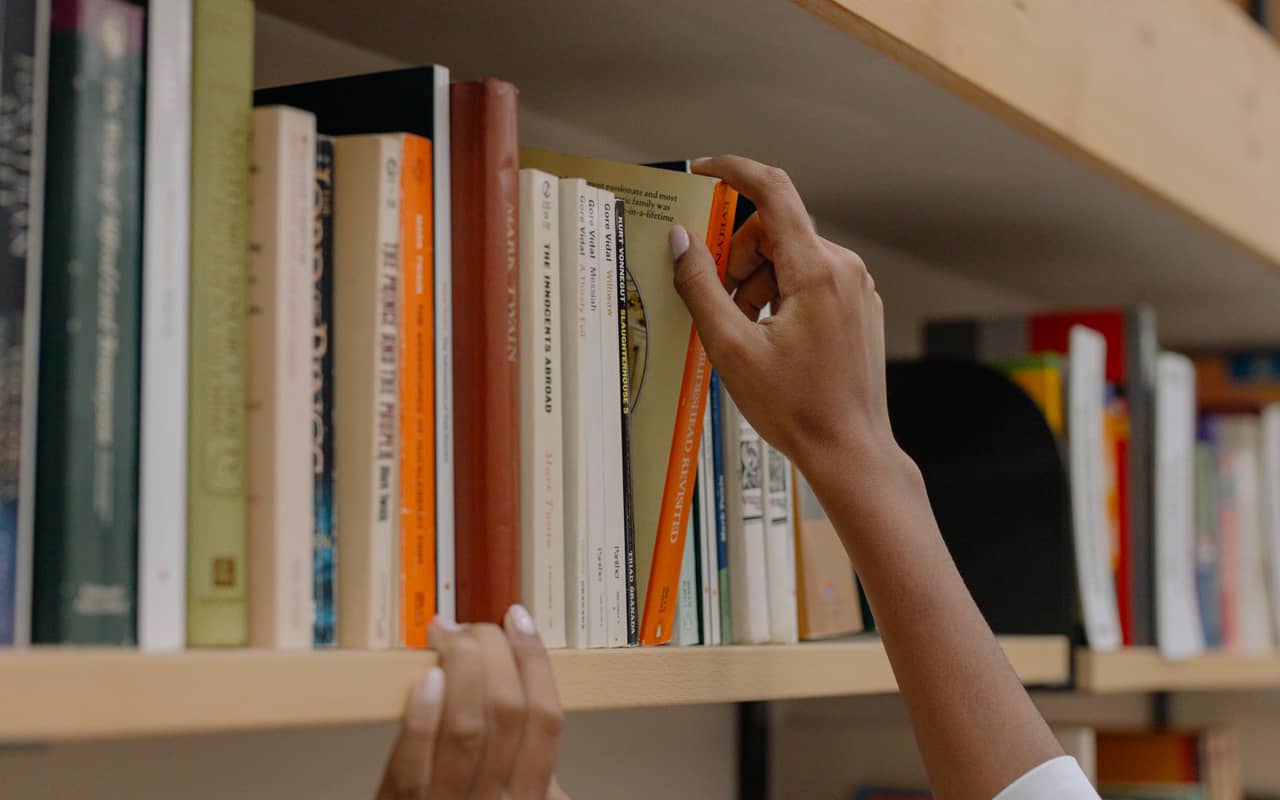Podcast: Download
Subscribe: Apple Podcasts | RSS

I sure have enjoying increasing my mental skills and pushing the limits of how much the human brain can learn.
Being the owner of an expanded brain comes with so many benefits too. For example, you can:
- Remember more
- Make better decisions
- Think faster
- Connect abstract ideas
- Plan further into the future
- Energize yourself when you’re down
- Enjoy mental peace on demand
The best part?
You don’t have to be so open-minded that your brains fall out.
After all, there are a lot of sharks out there teaching woo-woo “techniques” directed at the gullible.
But you can learn how to expand your mind based on scientifically valid processes that work quickly.
Let’s dive in.
How To Expand Your Mind: 15 Activities And Tips
The following practices are in no particular order of importance.
Usually they can be mixed and matched for maximum impact (such as juggling while reciting the alphabet backwards.)
One: Juggling With Added Challenges
Hang on, you might be thinking.
Juggling?
Well, yes. It expands your mind for quite a few reasons.
Research shows that it:
- Increase connections between the neurons in your brain
- Improves vision
- Improves memory
- Improves oxygen and blood flow or improvement cognition
To get all the research in one highly readable account, check out The Hand: How Its Use Shapes the Brain, Language, and Human Culture by neurologist Frank R. Wilson.
To take your juggling to the next level, include other skills, such as reciting from memory. I share how I learned to do this here:
To get started, get yourself some suitable balls and make it simple. Add one level of complexity at a time.
When you’re ready to supplement juggling with memorized material, I suggest you start with a song you already know.
Then increase the challenge by reciting new content you’ve only recently memorized. You can also juggle while completing many of these powerful brain exercises.
Practice at least four times a week for best results.
Two: Seek Out Incredible Thinkers
If you want to know how to use more of your brain, you really can just let it rub off on you.
We know that people learn by modeling others, so one of the easiest and fastest activities for stimulating mental expansion is simply to be around great thinkers.
Now, do you really have to be in the same room?
Yes and no. Obviously, listening to podcasts and watching videos of great debates can play a role.
But I’m pretty confident you’ll pick up more thinking skills when you’re together with people who regularly use more of their minds.
Options include:
- Attending public lectures and mingling
- Going to meetup groups
- Joining a chess club
- Going to a memory competition
- Hanging out with smart friends and family members
If you really can’t find people offline, seek out online discussion groups and forums where people demonstrate their expertise.
It can take some time to find the right mix, but it’s worth the search. The search itself should expand your mind too.
Just keep this principle in mind:
If you’re the smartest person in the room, it’s probably the wrong room.
Three: Meditate
Meditation is all the rage these days, and for good reason.
Few mental activities have produced as much scientific evidence of the benefits you can experience than meditation.
Here’s a guide on how to meditate for concentration and focus that includes some of the best science.
I suggest you start simply:
- Set a time for less time than you think you can sit
- Sit in a chair or on the floor
- Focus on your breath
- Let your thoughts flow unobstructed
- When the timer rings, sit for just a little longer
- Journal to capture your reflections on the experience
Four: Use a Memory Palace
If you’re not familiar with this incredible mental tool, it works like this:
You select a location such as your home. Then you identify a journey you can easily navigate.
Like Hansel and Gretel, you place “crumbs” of association along this journey that help you remember information.
Using the same Memory Palace, you follow a couple of patterns that rapidly ushers the information into long term memory.
Once you have this simple tool under your belt, you can use it to extend your knowledge of many topics and skills. For example, you can:
- Learn the planets
- Memorize the presidents
- Remember the periodic table of elements
- Recall geographical information from maps
- Absorb new vocabulary within minutes
And that’s just for starters. To master this skill, I’d like to invite you to this special program:
Five: Read With Momentum
Unfortunately, there’s a lot of hogwash out there about so-called “speed reading.”
Yet, you can learn how to read faster.
The trick is in selecting books worth reading – books that will actually expand your mind.
To do this, I suggest you create a vision statement. What is it that you want to accomplish or experience in life?
Next, do some research and identify 1-3 key texts on that topic.
For example, when I wanted to learn about consciousness, I quickly came across a book called Gödel Escher Bach.
To find more related books, I simply looked at the list of works cited and picked a couple. This process quickly led me to reading both Spinoza and Hume.
Of course, you’ll find that not every lead proves worth the time in the end. But learning how to separate the wheat from the chaff cannot take place if you don’t encounter a few bad apples along the way.
In other words, bad books also expand your awareness of what doesn’t work too. It’s win-win no matter how you look at it from this perspective.
Six: Practice Philosophy In Everyday Life
If you do any serious amount of reading, you’ll wind up covering a fair amount of philosophy.
But to enjoy an expanded mind, reading is not enough.
You have to do philosophy.
There are a few ways to do this.
For one thing, Gilles Deleuze thought that doing philosophy involves the creation of new concepts.
Now, “new” doesn’t necessarily mean “unique” or “original.” There’s also the power of concepts that are “new to you.”
For example, I often come up with my own pet phrases for concepts that have certainly existed before. But because I craft them by interacting with them, they take on a special emphasis.
Nir Eyal presents research from science on how and why this kind of interaction helps people focus and gain traction in life. Ramon Llull, Nietzsche and many other people have promoted this form of self-invention throughout history too.
Seven: Learn Ars Combinatoria (The Art of Combination)
Ars combinatoria is a big topic, but here are the broad strokes:
Basically, you create a Memory Wheel. On this wheel, you place individual letters. These letters represent larger concepts.
For example, if you want to remember how to act in certain situations, you would place letters on your Memory Wheel to remember those actions.
Instead of arguing, for example, you might choose to:
S: Say nothing
T: Take a deep breath
O: Open the dialog with a new question after suggesting a quick
P: Pause
Now, you might be thinking…
Hang on! Learning acronyms sounds like limiting the mind, not expanding it.
I understand the objection, but in this case, nothing could be further from the truth.
Sometimes by limiting ourselves to pre-memorized options, we wind up increasing our options. Then we’re able to learn more and enjoy the benefits of objective reasoning as a result.
It’s a big topic and there are more ways to use this technique for expanding your mind. Learn more about ars combinatoria today.
Eight: Learn Multiple Languages
If you really want to use more of your brain, learning just one other language won’t do.
Of course, there are challenges when it comes to learning more than one language at a time. But with strategy these are readily overcome.
The benefits of learning another language are huge because even just a small amount of multilingual study will:
- Reveal connections between cultures
- Teach you the history of how languages evolved historically
- Stimulate critical thinking skills thanks to exposure to multiple points of comparison
You’ll also meet many more people you can chat with, and some of them will be the “next level” thinkers we discussed above.
Nine: Learn New Manual Skills
We’ve already talked about juggling. But there’s also:
- Musical instruments
- Typing
- Fencing (swords and yes, building picket fences)
- Drawing
- Knitting, etc.
You might laugh at knitting, but one of my best friends is an avid knitter. He’s really brilliant and very successful and attributes some of his ability to concentrate and remember conversations to his knitting habit.
I’ve certainly noticed he pays more attention when we speak even though he’s clacking away at a new sweater or scarf.
Ten: Practice Multisensory Visualization
A lot of people visualize, but they make a weird mistake:
They limit visualization to seeing mental pictures.
This habit prevents them from expanding their minds effectively.
Instead, make sure you touch on at least eight of the major multisensory modes. We call them the “Magnetic Modes” in our community.
Try these visualization meditations to get started in a way that incorporates multiple sensations.
Eleven: Practice Self Inquiry
It can take a while to understand the idea of asking yourself questions. It certainly took me a while.
But it’s very powerful and can help you experience consciousness in a whole new way.
Basically, the tradition is very old and appears in everything from Advaita Vedanta and Zen to hermeticism and Cognitive Behavioral Therapy. I believe it has stood the test of time because it is an incredibly powerful cognitive activity.
My favorite questions are:
- How do my thoughts behave?
- Are my thoughts useful?
- What value do my thoughts have?
- Who is having this thought?
- Where is this thought taking place in my mind?
There are many more and the core idea is that they offer a “pattern interrupt.” Instead of being constantly lost in thought, you manage to experience the consciousness that your thoughts arise in.
This leads to experiences of tremendous mental freedom, as I shared in this TEDx Talk:
Twelve: Macro and Micro Travel
The more places you see, the more references you’ll have to locations, people and experiences.
This is true at multiple levels of travel:
- Other countries
- Other cities and states or provinces
- Other parts of your city
No matter what’s going on, you can always take a walk to a part of the area you live in to expand your mental model of the world.
Thirteen: Journal
Keeping a journal has been proven to improve memory and expand your experience of time. (See Richard Wiseman’s 59 Seconds for the research data.)
You can journal in a number of ways at the same time, including:
- Progress journaling (goals, books you’ve read)
- Biographical journaling (daily events)
- Gratitude journaling (things you’re thankful for)
- Dream journaling (recording your dreams)
The more you practice different styles of journaling, the more you’ll find the space in your mind expanding.
Fourteen: Practice Empathy
Next time you’re meditating, try this simple exercise:
As you recite the alphabet from A-Z, think of people you know and embrace them with love in your heart.
For example:
- A – Adam
- B – Bonnie
- C – Carl
- Etc.
Within just a few moments, you will have created positive emotions for multiple people.
Here’s another exercise:
The next time someone annoys you at the grocery store or when you’re backed up in traffic, catch yourself. Hold the person who has irritated you in your heart and forgive them.
You’ll have more space in your mind for better quality thoughts this way.
Fifteen: Explore Your Dislikes
For awhile, klezmer was not exactly the kind of music I liked.
However, to improve the quality of my mind, I took it upon myself to dive deep into several genres of music I normally avoided.
I’m still not a huge fan, but as with embracing those we don’t like in our environment, spending some time with material you normally dismiss gives you more perspective.
The best part?
It makes you appreciate the things you do like a lot more.
How To Use More Of Your Brain Habitually
There are many more activities you’ll come up with along your personal journey of mental improvement. And I hope you’ll share your updates along the way.
To make sure that these strategies become habitual, schedule the activities in a calendar and show up.
Plan to explore each for at least 90 days at a rate of at least four times per week. If you can get more sessions in, all the better.
This approach works because your brain forms neuronal connections through repetition.
So what do you say? Are you ready to expand your brain’s capacity?
Dive in and keep us posted on your progress. I’ll be right there with you!
Related Posts
- 11 Benefits of Critical Thinking That Rapidly Improve Your Life
Critical thinking provides so many benefits. But did you know there's more than one kind…
- 7 Critical Thinking Examples That Will “Bulletproof” Your Mind
Real life critical thinking examples are hard to come by. This post gives you 7…
- 5 Critical Thinking Quotes That Will Instantly Sharpen Your Mind
Most critical thinking quotes have nothing to do with the critical part. These 5 quotes…




















2 Responses
I am currently 28. I have been told multiple times over the past decade by various people that meditation can be extremely helpful. I have never before really tried to get into the groove of it, but, today I am making a self-promise to make this a daily thing for myself. Thank you very much for all the information you provide and am looking forward to taking in as much as I can to improve my mind, my health, ect.
Thanks for stopping by.
The best part is that there is a wide variety of meditation types to explore.
If one doesn’t suit you in the beginning, you can always explore another and then come back for another attempt later.
You can also interleave between different meditation types to create a variety of interesting states.